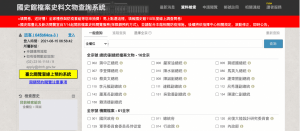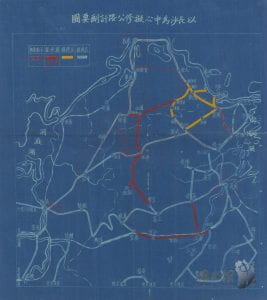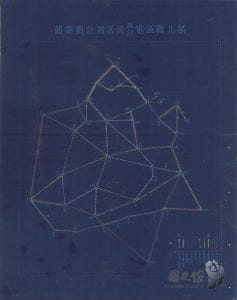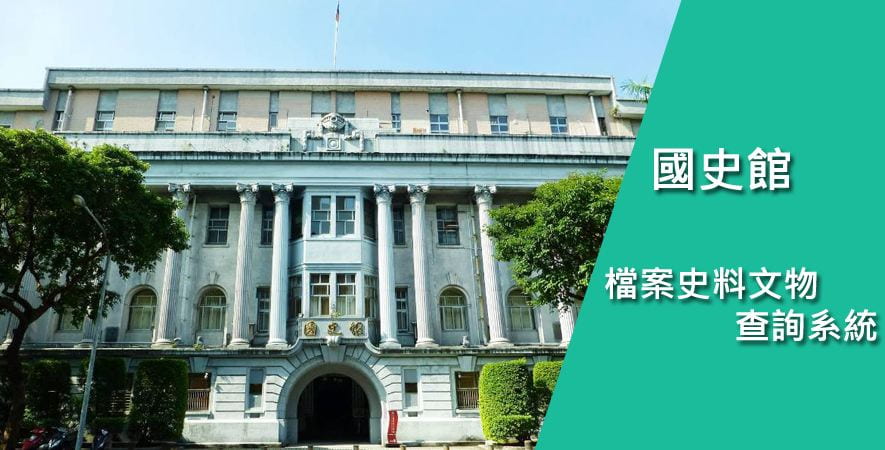The Covid-19 Pandemic changed everything, including academic research on Asia. The disruption of international travel to Asia limited access to archives, as well as the opportunity to conduct field work. In this situation, it is important to find alternative means to get sources and do research. Based on my experiences of using the Academic Historica Collections Online System, this blog explores the use of digital archives to do research on Asia during the pandemic.
Overview of the Archive
Established in May 1914 at Beijing, the Academia Historica (Guoshi Guan) was the central government institution responsible for compiling official history and collecting official documents. After 1949, the Academia Historica moved with the Nationalist government to Taiwan and reponed at Taipei in 1956.
The Academia Historica is responsible for managing the records of Republic of China Presidents and Vice-Presidents, as well as the records of a number of government institutions and prominent political figures. The records of Academia Historica cover the political, military, economic, social, and cultural aspects of the Republic of China. Therefore, they should be valuable for research on any topics of Republic of China history.
The digitization of Academia Historica records began in 2002. It was part of the Republic of China government’s general plan to digitize government records for public use. In 2016, the Academia Historica opened its digitized records to the public. By January 2019, the Academia Historica has made more than six million pages of digital documents available for public use. Since then, that number kept growing. The digital documents are searchable and open to download through the Academic Historica Collections Online System (bottom).

Some Examples of Records at Academia Historica
My experiences of using the Academic Historica digital records focused mainly on the Republican History (1912-1949). I found two collections of documents most valuable: the Chiang Kai-shek Collection and the Chen Cheng Collection. Chiang was the supreme leader of the Nationalist government and the Nationalist Army, while Chen served high civil and military posts under Chiang. The two collections include not only the personal directives and papers of Chiang and Chen, but also the official documents collected by or associated with them. Therefore, the two collections are comparable to U.S. presidential libraries in terms of the broad range of sources they contain.
Some of the most interesting documents I discovered were those on the Wuhan Campaign (June-November 1938) in the Chen Cheng Collection. The campaign involved more than 800,000 Chinese soldiers and about 400,000 Japanese soldiers and was fought in central China. The documents in the Chen Cheng Collection revealed the elaborate communication networks on the Chinese side. These include a highway network that connected Hunan, Hubei and Jiangxi (bottom left, copyright Academic Historica), and an inter-province landline telephone and telegraph network in the three provinces (bottom right, copyright Academic Historica).


Tips for Searching the Records
The most convenient way to use Academia Historica digital records was through keyword search. To maximize the chance to find useful materials, I recommend using various types of keywords for any one topic: thematic, personal, institutional etc. It’s also helpful to pay attention to historical context and use keywords in contemporary use.
After searching by keywords, the results can be browsed either by the record group number or the starting year of the documents. When finding some useful documents, it’s also a good idea to browse other documents within the same record group. This often leads to additional useful materials.
Overall, the Academia Historica is probably the largest and best organized digital archive in Chinese language open to the public. It provides scholars with an alternative to in-person archival visits during the pandemic. For other options such as online databases please refer to my blog post “Doing Research on Asia during the Pandemic, Part II: Online Databases” on the Sigur Center for Asian Studies website.
Zhongtian Han, Ph.D. East Asian History 2022
Sigur Center 2021 Field Research Fellow
China


